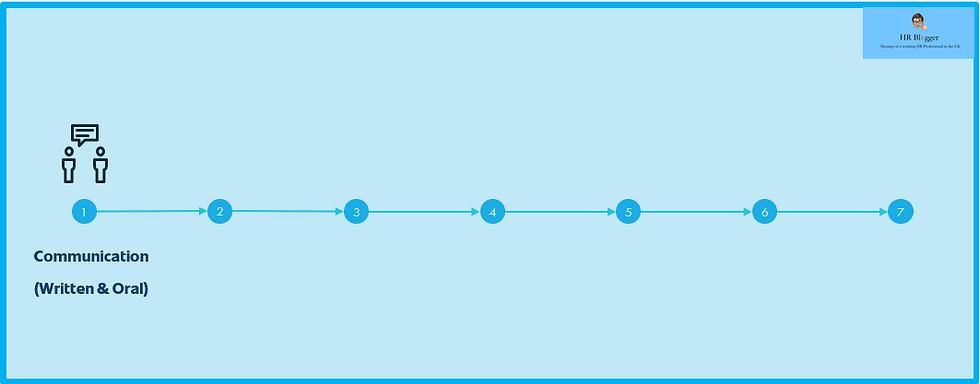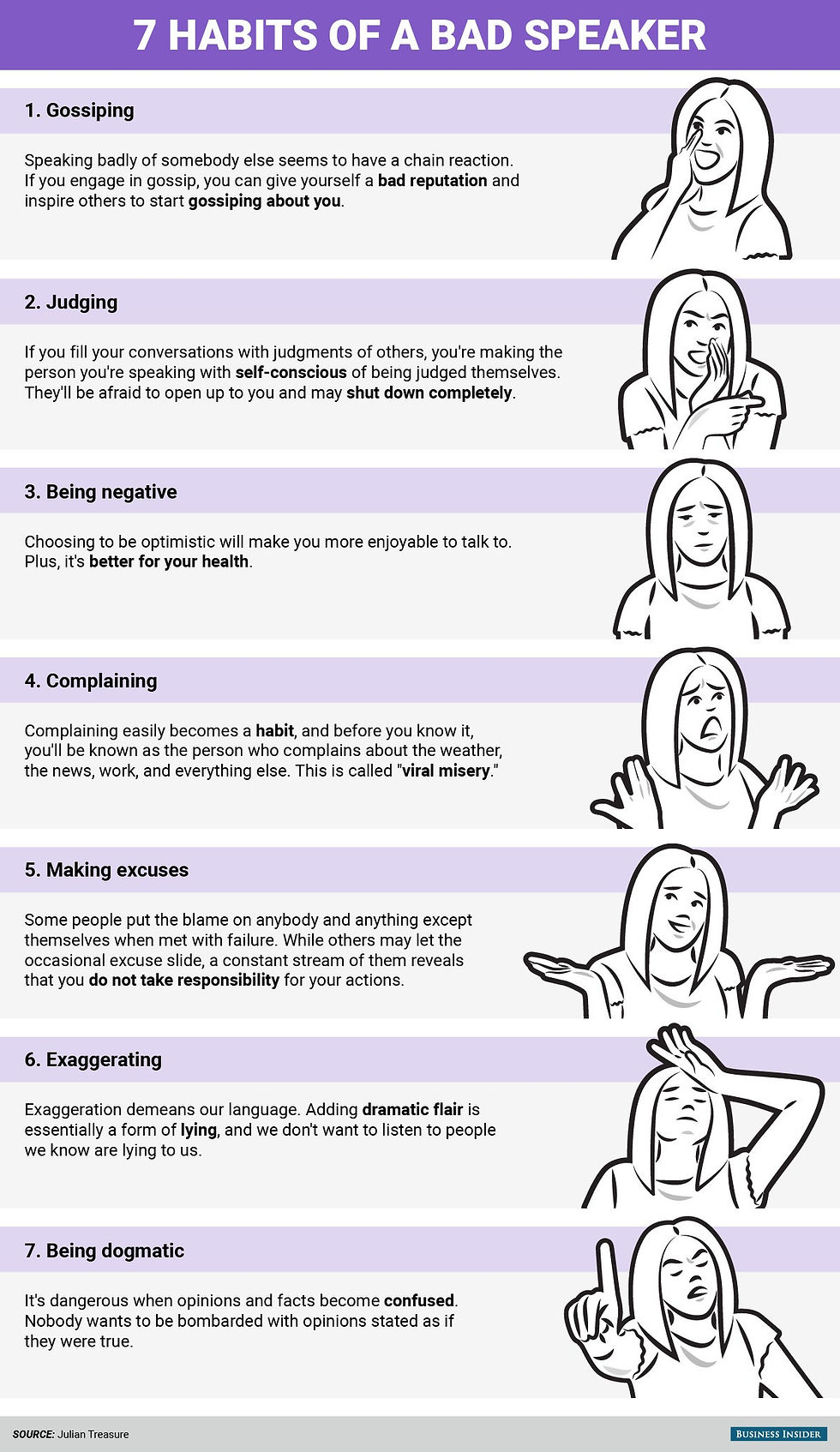My 7 steps to personal effectiveness - Step 1; Communication
- HR.Blogger
- May 12, 2020
- 3 min read
It is fair to say that a lot of people are hitting low points with the challenging events that are happening at the moment. This is why I started researching topics on how to get the best out of yourself and to realise your true potential. Something that has really resonated with me was that you can make your life more fulfilling and happier by enhancing your personal effectiveness.
Another reason I like the topic of personal effectiveness is that this is something you can learn and do. It’s not an inborn trait. To be more effective doesn’t require you to be more intelligent, educated, wealthy, or more experienced. It requires only your willingness to get to know yourself and to work on changing your habits.
Whilst I am by no means an expert on personal effectiveness and I am not pretending to be a life coach I am really passionate about the quest for constant improvement to get the most out of my work and personal life.
Since this is a big topic, one that I feel is pretty important, I have broken it down into 7 different steps. To maximise your personal effectiveness, you will want to work on all 7 steps over time. But working on just one in the short-term will increase your effectiveness incrementally. Pick one habit that you feel comfortable working on and start there.

Communication is essential because, in order to succeed, you need to gain the willing cooperation of others. In order to gain that, you need to communicate effectively.
Listening
Listening is one of the most important skills you can have. How well you listen has a major impact on your personal effectiveness and on the quality of your relationships with others. Being a good listener is half the equation to being a good communicator.
Simply put, in becoming a better listener, you can improve your productivity, as well as your ability to influence, persuade, and negotiate. What's more, you'll avoid conflict and misunderstandings. All of these are necessary for success!
Use these useful tips to become a more effective listener;
L = Look interested, get interested
I = Involve yourself by responding (appropriately)
S = Stay patient
T = Test your understanding
E = Evaluate the message
N = Neutralise your feelings
Active listening involves more than just hearing what someone else says. When you practice active listening, you are engaged in what the other person says without offering advice or being judgmental. The most important aspect of active listening is reflecting back what the speaker says to ensure understanding.

Powerful Speaking
Have you ever felt like you're talking, but nobody is listening? Well, Julian Treasure provides some deadly sins of speaking that people are making and therefore things to avoid in order to become more effective.
Julian Treasure also explains that there are four powerful principles that we should follow for our speech to really be effective, these are;
H = Honest (straight & clear)
A = Authentic (be yourself)
I = Integrity (doing what you say)
L = Love (positive intent)
Whilst the last point might sound contentious, I believe this to be the most important as people will often forget what you said or did, but they will never forget how you made them feel.

Nonverbal Communication
Non-verbal communication i.e the way you listen, look, move, and react all show whether or not you care, if you’re being truthful, and how well you’re listening. When the non-verbal signals match up with the words you’re saying, they increase trust, clarity, and rapport. When they don’t, they can generate tension, mistrust, and confusion.
There is a lot of research on non-verbal communication and it is important to consider how this impacts the effectiveness of your communication.
Method of communication
With all the different options we have for communicating, choosing the right method is more important than ever. It’s easy to become overly reliant on one form of communication. Communication methods must be chosen wisely and can include any of; talking, individual meetings, team meetings, phone calls, video calls, text messages, letters, instant messages, emails, newsletters & blogs.
One of the most important things for effective communication is situational awareness. The message is really not about us. It's about meeting the needs and expectations of others. We have to communicate with the audience in mind.
As I write this blog, I am reminded of how much I need to review my communication. Sometimes I do fall short in communicating effectively and I want to continuously strive to improve these skills. My key takeaways' would be to;
Listen more, talk less
Don't rely on convenience communication (connect more, email less)
Invite two-way communication (ask for more feedback)
Read between the lines (nonverbal signals)
Stay calm and be positive
I hope you have found this useful. Keep your eye out for the 2nd step which will be coming next week.
Stay safe everyone.









Comments